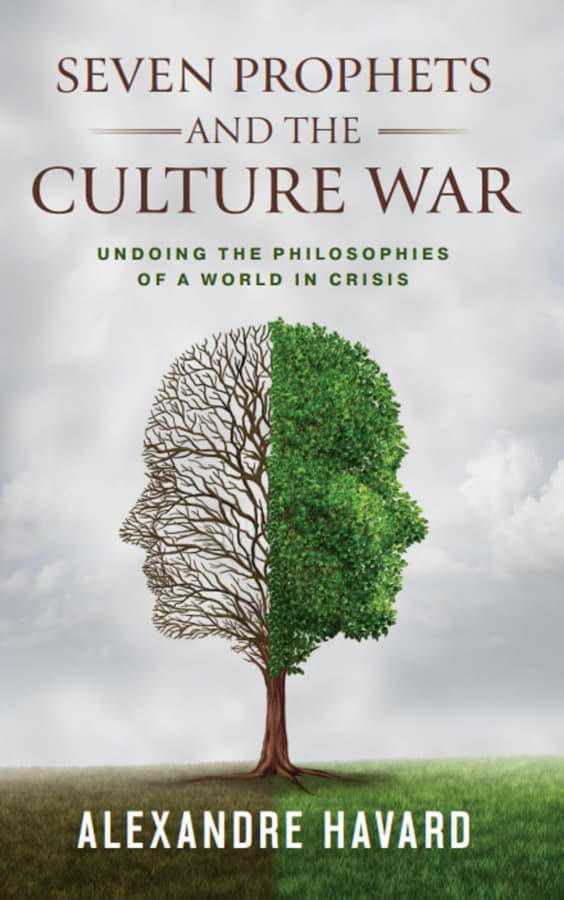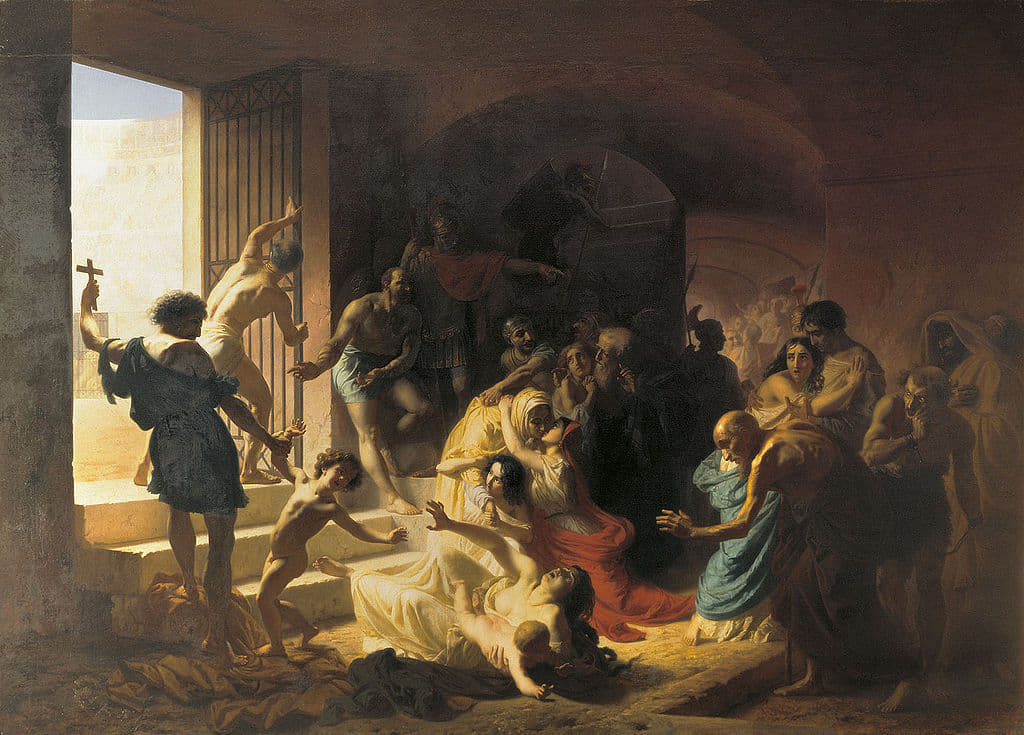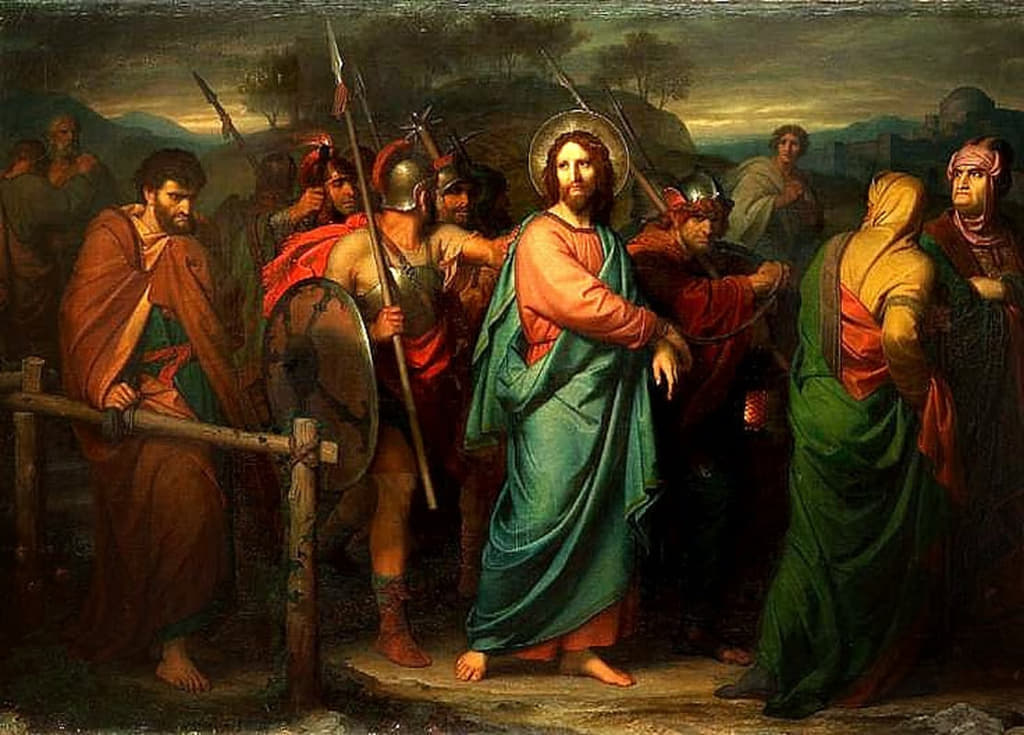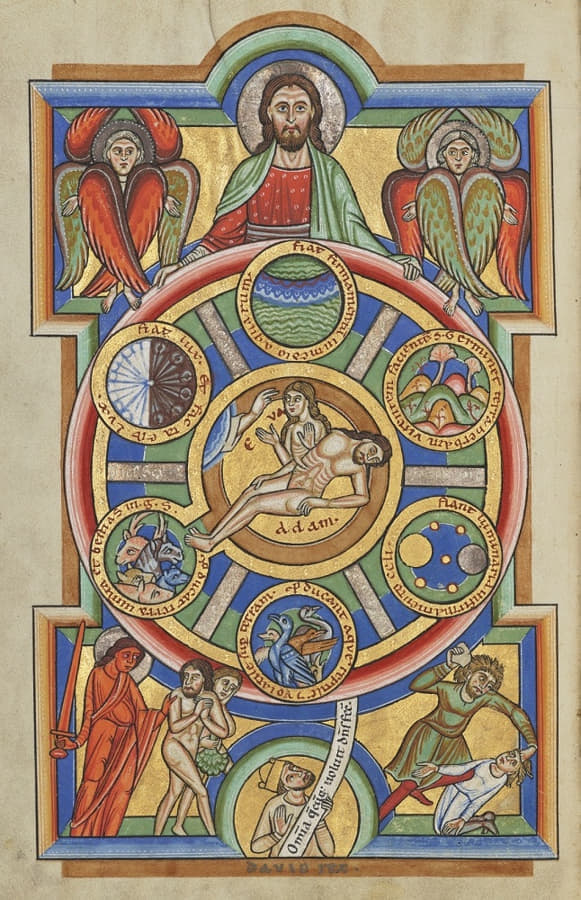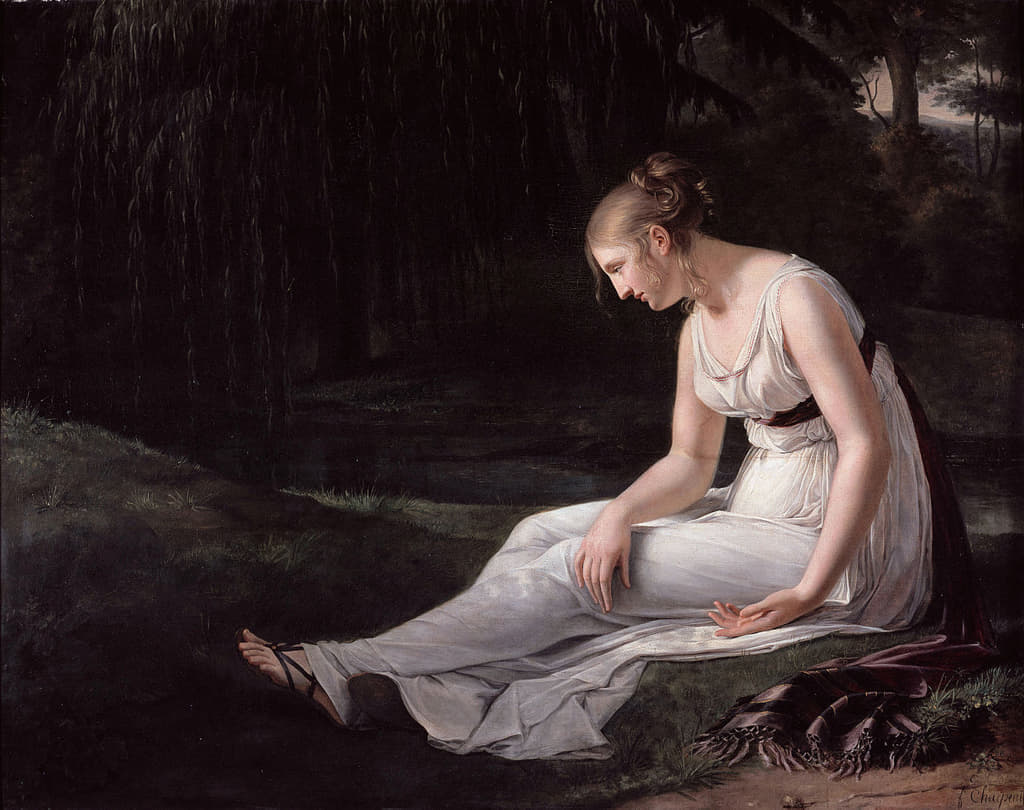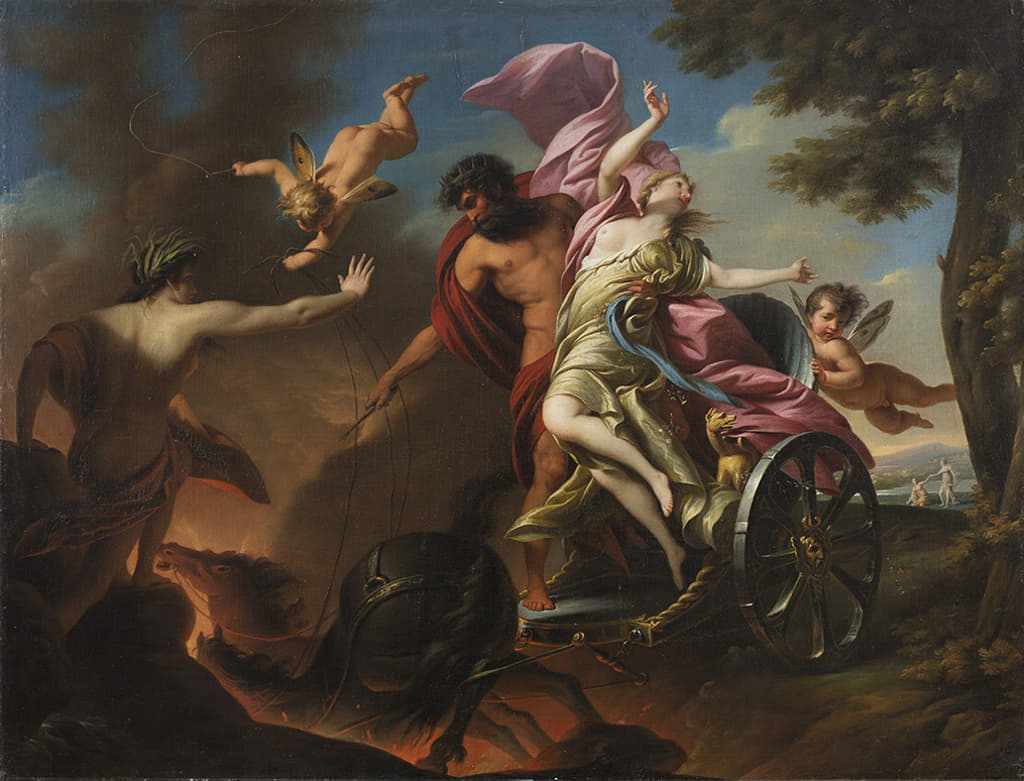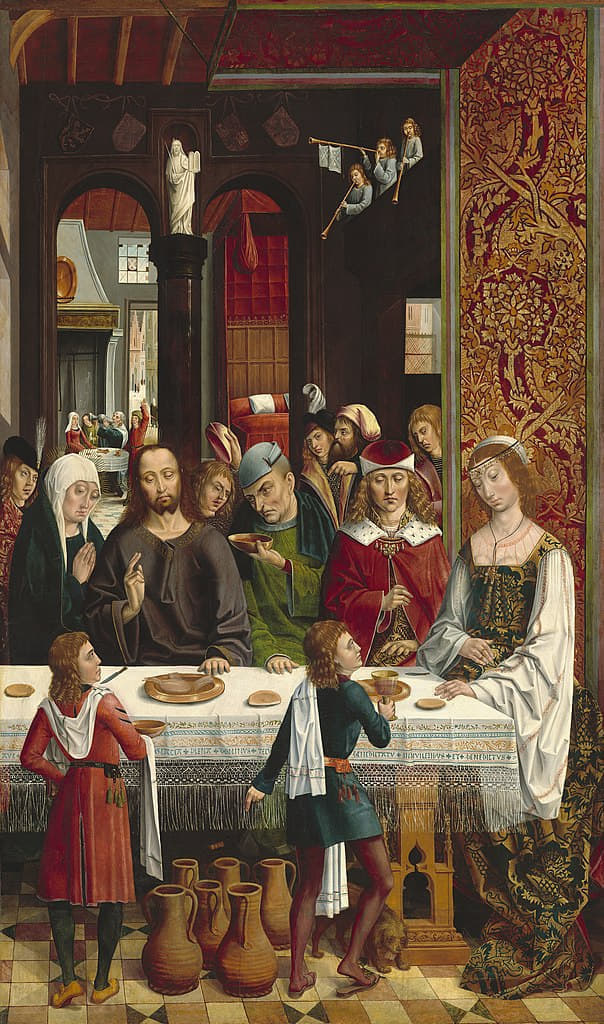It seems that in contemporary Christian thought, and particularly among Catholics, the spirit of the age is received without ever being filtered, as if it had always been there. There are several reasons for this. Firstly, many of those who profess to think take seriously what the spirit of the age whispers to us when it asserts that, in the West, we live in a perfectly neutral public space, which imposes nothing on us, so that, strictly speaking, the spirit of the age does not exist: it is just an empty place where everyone is equally entitled to speak. Secondly, there is a large faction of Christian intellectuals for whom criticism of the West is unacceptable, in the sense that such criticism is, in essence, immoral. These distant heirs of Christian democracy believe that, since liberal democracy is the absolute good, politically speaking, and the West is populated by liberal democracies, there is nothing to say about the spirit of the age other than to congratulate themselves on the fact that it is heading steadily in the right direction. Finally, there are all those—and there are many—for whom, Christianity having once strayed into the camp of “reaction,” there is no salvation except in instinctive reverence for “progress” and whatever presents itself as such, whether this automatic adherence to the past is a means of atoning for the past, or whether it reflects a genuine conviction that the Western world is moving in the right direction and that it is moving a little more in the right direction every day.
Thus, with the exception of the meagre cohort of “fundamentalists” for whom the present age has a pact with Hell, as has every age for the past two centuries, there is no one within the sphere of Christian intellectuals to actually question our times, to question the profound forces at work in them. This absence is all the more surprising given that, from the point of view of religion in the West, our era is not just any era—it is the moment when the Christian framework of our societies is collapsing almost everywhere, even though, until the 1960s, this framework was still relatively solid. Even if, in this field, which ultimately concerns the secrets of souls, we are not overly fond of statistics, it has to be said that whatever the variable we take into consideration—Sunday Mass attendance, for example, or the number of baptisms—we are witnessing in Western countries, and in those that have joined the West in recent decades, such as the countries of Eastern Europe, a spectacular decline which, since the beginning of the twenty-first century, has often taken the form of a collapse.
Such spiritual tectonic movements are rare in history. In fact, to find the equivalent, we would probably have to go back sixteen centuries, when, following the conversion of emperors, the populations of the Roman Empire became predominantly Christian in the space of a few decades. Thus, from a religious point of view, we cannot pretend that our time is a banal era in which nothing significant is happening. And yet, as in Edgar Poe’s short story, ” The Purloined Letter,” the evidence of the radical and massive de-Christianization of the West that is literally before our eyes is of little interest to theologians and other Christian thinkers. This general lack of interest can be explained by the reasons I mentioned above. For those who take seriously the discourse of our societies on their neutrality, their principled plurality, de-Christianization cannot be the “fault” of our Western world, by definition “benevolent” and “enlightened.”
The inability to think seriously about the link between de-Christianization and the spirit of the age is obviously not anecdotal. In particular, by failing to think seriously about this link, contemporary Western Christianity is reduced to considering that if there is massive de-Christianization in the West today, it is necessarily Christianity’s own fault: contemporary Western Christianity alone is responsible for de-Christianization. Within Catholicism, the enemy kins of conservatism and progressivism are in perfect agreement on this point. For the former, the crisis is simply the result of “going too far,” while for the latter, on the contrary, the crisis is the result of “not going far enough.” But, in all cases, the collapse is not because of the spirit of the age, which either does not exist, or is moving in the right direction—that of progress.
All these explanations, or pseudo-explanations, spontaneously agree to rule out another approach, which will be developed here. This approach postulates that the spirit of the age does indeed exist, that it differs essentially from that of earlier eras in the West, and that this spirit of the age is fundamentally hostile to Christianity. Put another way, this assertion is tantamount to declaring that a fundamental mutation has taken place in the recent history of the West—one that can also be described as a metaphysical mutation—which has tipped the West into a new spiritual universe where opposition to Christianity, far from being reduced to the anticlerical reactions of yesteryear to the “power” of the Church, constitutes a decisive element in the physis of the contemporary Westerner, so that he has no real choice as to whether or not to be anti-Christian: by nature, by his very nature, he is opposed to Christianity.
One can fight one’s nature. Some people do this remarkably well, which explains why so many genuine Christians remain in the West. Nevertheless, this struggle against one’s nature is exhausting, and requires a continuous expenditure of spiritual energy, so that one cannot go beyond the struggle against one’s nature. What is more, the decision to go against one’s nature, because of the courage and energy it requires, can only concern a minority. The vast majority prefer to let themselves go where their nature invites them, without giving further thought to the nature of their nature. This explains why Christianity in the West today is nothing more than a minority affair, with the question of the positive or negative nature of this minority status constituting another interrogation unrelated to the present reflection.
However, we cannot be satisfied with the assertion that, a few decades ago, the West underwent a metaphysical mutation that makes the current spirit of the age the natural enemy of Christianity. But we need to characterize this metaphysical mutation, to understand it in order to grasp it. When it comes to metaphysics, there is no other way forward than to question what lies at the very heart of all metaphysics—its relationship with the notion of truth. It is not just a question of the content of this notion, of what it tells us is “the true,” but also, and perhaps above all, of the status of this notion in the metaphysical galaxy that employs it. To say, for example, that the truthfulness of a thing is the sole basis of its value, the absence of which deprives the thing of all value, is to confer on the notion of truth a decisive status, since truth is, from then on, the origin of all other values. Contrary to the spontaneous belief of pure and probing souls, this determining status of truth is not found in all metaphysics. In fact, it is rare.
This intuitive perception of the notion of truth as a substantial determinant remains rooted in our representations, even our collective ones, more than we might think, since millennia-old spiritual reflexes cannot be erased in the space of a few decades. It does, however, complicate our search for the truth of the metaphysical moment we are living through, as it postulates that “modern” truth is to be found in exactly the same place as “ancient” truth—in other words, modern truth should structure all our modern values, stating what, from the point of view of Western modernity, is evil and what is good.
But this is not the case. Truth, in the modern sense of the term, is in no way located where it once was in the West. Let us take a few examples to help us understand. In the past, questions such as, “Is there a God and eternal life;” “If God is, what is the religion that expresses His Word;” or “If God is not, does Marxist-Leninist ideology provide the meaning and sense of the human adventure”—constituted the highest place of confrontation with truth, because our predecessors believed that the answer to these questions engaged human existence in its highest and most decisive form.
Today, such questions have, in practice, lost all importance. Few Westerners care whether or not there is a God, because deep down, this question seems of little importance to them. It is also revealing that, in an age confronted with the awakening of Islam and the challenges posed by this awakening, to the point of devoting numerous debates to it, not many people in the West are interested in the truth, or otherwise, of Islamic revelation, any more than they are in the truth, or otherwise, of the Christian faith. This is because the metaphysical site of truth has shifted. In earlier times, truth was an affirmative category: truth was stated as a universally valid assertion, always and forever. The consequence of this affirmative character was to separate the world and life into what was true and what was not, into truth and falsehood.
What has become of the modern order of truth? At first glance, one might think that truth has simply disappeared, so much so have the great theorists of post-modernity—Michel Foucault and Gilles Deleuze in particular, as well as their epigones—shown reticence towards the notion of truth, judged in turn to be “excluding,” “intolerant,” but also “old-fashioned,” even “reactionary.” In fact, the discourse of Western modernity avoids the term “truth” wherever possible, preferring instead, for example, “diversity” or “singularity.”
And yet, truth has not disappeared. Indeed, no human discourse on the world and on life can dispense with the notion of truth, because every human discourse of this kind enunciates a word which, even quite unconsciously, is based on “what is”—in other words, on truth, in relation to what is not, error, illusion; and this despite the assertion that there is only illusion, that life is an illusion. The question, then, is less that of the absence of truth than that of its formalization—that is, of the new form that truth has assumed in our world.
What is this new form? As I said earlier, truth used to be affirmation. In other words, truth was not something naturally deduced from human existence, but something that had to be said, named and proclaimed. In this respect, Descartes’ famous statement, “cogito, ergo sum” was no different from the explicitly religious assertions of the traditional Christianity of his time. In our time, on the contrary, truth does not need to be said; it does not need to be named. And if it does not need to be named, it is because it is a process.
What does “being process” mean? It means that truth, according to Western modernity, is so embedded in us that it takes on the appearance of sensible evidence. Truth needs no enunciation, because it presents itself to us as the very expression of existence, the way in which the verb “to live” gives itself to us. Modern truth is not an enunciation which, by the very fact of its enunciatory status, rejects what is not that enunciation, thus organizing the world on the basis of the two fields of truth (even if invalid) and error (even if partial). It is a process, the very process of human consciousness, which cannot be other than this process.
It is sometimes said that Western modernity is reverting to a form of “paganism.” This is not true. In paganism, or at least Greco-Roman paganism, the task of consciousness was to conform to nature, because it recognized a sacred order in nature. Modern Western consciousness, on the other hand, sets itself no such task. Being itself is enough. This is because “Western being in the world” does not seem to it to be one of the possible historical forms of consciousness’s encounter with the world. “Western being-in-the-world” is the only effective and authentic form of being-in-the-world. It is the sensible evidence.
The confrontation between the “Western being in the world” and other forms of being in the world of consciousness, whether these are earlier in the history of human civilizations, or located elsewhere, in other geographical spaces, is, from the Western point of view, absolutely not a confrontation between “representations of the world.” It is a confrontation between the obvious and what stands outside the obvious, on the side of illusion, alienation and lies. It is precisely insofar as it is conceived as a “confrontation” that this representation is linked to truth. There is evidence, which is of the order of truth, and what stands outside evidence, which dissociates itself from this order. However, evidence is not thought of, not directly at any rate, as truth. It is sensible evidence—and that is all, since that is enough. Sensible evidence does not need truth, or so it believes. It does not need truth because it is undeniable. Being undeniable, means it does not need enunciation. We do not need to name it, to describe it, to circumscribe it, because it is there, and it is in nobody’s power to prevent it from being there. It is what is, the “put there” of the world.
Because it is the “laying there” of the world, sensible evidence does not operate according to the categories of “truth” and “error.” It obeys another dichotomy: that of wisdom and folly. The wise man is the one who recognizes the evidence of the senses and instinctively accepts it as the “there and then” of the world. On the other hand, he who does not receive this evidence is not, or is only subsidiarily, in error. He is mad, since it is the very nature of madness to refuse the obvious, by claiming, for example, that it is sunny when it is actually night. This perception of the refusal of the obvious as “madness” explains why contemporary Westerners, unlike their predecessors, do not see those who contest the sensible obvious as consciences in error, to be converted, but rather as alienated consciences, to be cured. For Westerners (I am referring, of course, to those who currently determine the rules of the game in the West), the world is not divided into those who are right and those who are wrong: it is divided into wisdom, i.e., health (the West and all those who associate themselves with it) and folly, i.e., madness (the rest of the world). As for the madman, wisdom teaches us that we must try to cure him, but that if he becomes dangerous in his madness, he must be locked up: cure or lock up, that is the alternative the modern West imposes on the rest of the world.
This representation of truth as a process, as nature, making sensible evidence the only reality, enables contemporary Westerners to construct a sense of history. If, from time immemorial, sensible evidence has indeed been the only reality in the world, it has nevertheless been necessary for human beings to become aware of the evidence. Our era is the first—within the spiritual perimeter of the West, of course—to recognize and acknowledge the obvious, and is thus the highest, most enlightened epoch in human history, and the path that has brought the human caravan to our time is what we usually call “progress.” Western “progressism” is thus nothing other than the cult of the obvious, and the effort to propagate this cult, and impose it, if necessary, on those who remain resistant.
It therefore takes a real spiritual detoxification to dare question the “obvious” nature of sensitive evidence. Today, such questioning is much more difficult than it was when religious faith was called into question in earlier eras. Back then, religious faith was explicitly presented as faith, i.e., as adherence to an invisible reality which, because it was invisible, did not impose itself on the senses. Faith contained within itself, in its essence, the possibility of doubt and rejection. In our system, on the other hand, evidence is unquestionable, unless, as we have seen, one is insane. The question of its possible non-obviousness cannot and must not be asked, and it is up to each individual to control his or her reason so that it does not clash with sensible evidence. Each individual is the guardian of his or her own sanity. But to do so, he must constantly monitor himself to ensure that he does not diverge, and that he continually adheres to the sensible evidence.
The contemporary Western world has thus invented a new kind of totalitarianism, a totalitarianism that can be said to be perfect because it is not based on an external constraint—and therefore perceptible to anyone with a modicum of lucidity—but on an internal constraint, with everyone in charge of their own control and zealously participating in this function from which they can only free themselves through death. Representing truth no longer as an assertion but as a process comes at a cost: one has to constantly work on oneself to conform to the process, one has to perform. “Performing” means eliminating, as phantasms, all suggestions of the mind evoking the possibility of a beyond to the sensible evidence; it also means nurturing a relationship of enamored obsession towards what presents itself to us as sensible evidence. It means organizing ourselves to continuously enjoy the sensible.
This is the other side of the coin. Modern ideology generally presents itself as a culture of freedom, offering the subject the freedom to “realize” himself as he sees fit. But this is just an ideology. If we question it as an ideology, i.e., as an artificial and/or self-interested representation of the world, we realize that the actual reality of our concrete existences is the very opposite of the expression of this divine freedom. The reality of our world is that every individual, far from being free, is constantly assigned to the task of grasping as much of the world as possible in order to appropriate it and derive what we call “jouissance“—a term that is far from confined to the realm of sexuality.
But to understand this reversal, we must first determine what is non-obvious, what is constructed, in the relationship to sensible evidence. This representation of truth presupposes, in the first place, the existence of two entities which, despite appearances, have nothing in common: firstly, the subject, and secondly, the rest of the world.
In this day and age, you are not a Westerner if you do not believe in the subject. It is all very well to assert that the subject is manipulated, alienated, trapped by the “system,” as some on the Left claim. But even and especially those who develop a so-called “critical” theory of the subject do not question the notion of the subject, which they take for granted. On the contrary—the end of history seems to them to coincide with the effective advent of a subject finally lucid and liberated from all conditionings, who can realize his freedom with full knowledge of the facts.
But what exactly is a subject? An individual consciousness, you might answer. And indeed, each of us instinctively feels like an individual consciousness. But it would be wrong to regard this feeling as universal. One need only have studied history to realize that there are entire civilizations for which the existence of an individual consciousness seems highly problematic, the primordial “I” seeing itself not as an autonomous individual but rather as a simple, humble part of a whole—whether that whole be the cosmos or the tribe.
The question, then, is rather why we instinctively believe in the subject, to the extent that, for a Westerner, it is possible to lose everything, but inconceivable to lose one’s status as subject. Let us also consider the place that modern morality increasingly accords to the notion of the subject’s “consent” or lack of “consent” in determining crimes and misdemeanors. Let us also consider the transcendent legal status of the subject, which is like the ridge beam of all our law.
Why do we believe in the subject in this way, without knowing that we believe in it, since for us the subject is? The answer lies in our relationship with sensory evidence, or, more precisely, in the way it forces us to conceive our relationship with the world. It leads us to perceive everything as a support object. Let us explain these two terms. Object: the universe is made up of nothing but inert objects, even when they have a biological existence on the surface. Unlike earlier ages of the world, which were fundamentally structured around the distinction between sacred and profane, the contemporary West proceeds to a radical equalization of the world, making it a mere collection of objects which are, to use an expression employed earlier, simply “put there,” existing only through this status of “put there,” and which can, at any moment, be extracted from the world, without damage to themselves or to the world.
But these objects are also supports. To be a “support” means that every object, in the world and in its “place there,” is oriented. It has always been oriented towards its use—whatever that use may be. The character of “the util,” to borrow a phrase from Martin Heidegger, is the essence of the object, of every object. It is this orientation that determines the subject, who has a monopoly on detecting the utilitarian in the object, because the object is necessarily oriented towards him. The subject is thus the only one who, as a subject (it can of course be an object for another subject), distinguishes itself from all objects thanks to its ability to detect the orientation of each object.
Thus, the subject does not exist without objects, and without the representation of the world as a sum of indefinitely separable objects. If there is a subject in the West, or, more precisely, if we believe there is a subject, it is simply because the Westerner, for a long time already, but in our time with a radicalism and logical fanaticism infinitely superior to those of previous ages, sees in the world only objects oriented towards him. Because he sees the world in this way, as a vast space for the determination of supporting objects, the Westerner instinctively sees himself as a subject, since to be a subject is nothing other than to determine things in the direction of their use. As for making truth the process of adherence to sensible evidence, this is nothing other than naturalizing this representation of the world according to which each thing is only an object, and each object is only for the subject.
It is paradoxically deduced from these elements, since its official raison d’être is exactly the opposite: the subject is nothing in itself. It only comes into being through the object, and through the assignment it imposes on the object. The subject is this permanent work of assignment, and nothing else. To exist, in the contemporary West, is to be able to operate on things. It is 1) things, and 2) the ability to operate on them, that make the subject. Thus, there is no subject in itself that triumphantly emerges from history to assert its being, its power and its juridical, economic and moral value, and then begins to act on the world. The opposite is true. The subject is the product of the work of assigning things, which, by positing the thing as “the util,” generates the distinction between the oriented object and the subject that notes this orientation and takes technical, economic, psychological advantage of it.
We must now turn to the precise characteristics of this organized power over things, for at this stage of our reasoning, we are still behind the real singularity of our age. That the world is organized in such a way as to be oriented towards a subject who works on it, is something the West has been convinced of for several centuries now. The Promethean titanism of twentieth-century totalitarianism is precisely the product of this conviction. What changes in our time, however, is the nature of the orientation of things towards the subject. In the past, before the radical break of the second half of the twentieth century, the orientation of things, their use by the subject, responded to a will to power. This will to power could be technological, economic or existential in nature. Its aim was to increase the subject’s power through scientific and technical “progress,” the force of arms or the economy. Often, moreover, the subject was collective: it was a people, a civilization that projected its power through overt and explicit domination of the world of objects.
Since the great turning point of the second half of the twentieth century, the world’s orientation towards the subject has changed axis. This new axis is based on principles that are no longer governed by the will to power: the first of these principles is the notion of the singularity of the subject, which makes the aggregation of subjects impossible, so that the subject can only experience itself as a subject in a grasp of things forever distinct from that operated by other subjects. It is like a privatization, to use an economic analogy, of the notion of the subject, which of course needs to be analyzed more closely to assess its relationship with neo-liberalism, the dominant economic and political ideology of our time.
Secondly, the orientation of objects is no longer magnetized by the will to power. The modern, or post-modern, subject does not care about leaving his name in history, about expanding his being in the manner of an Alexander or a Napoleon. What he does want, however, is to derive jouissance, i.e., a sensitive interest, from each of the objects he grasps. It is a mistake, moreover, to say that the subject wants jouissance. In reality, he wants nothing conscious. Quite simply, he cannot apprehend the world in any other way than through interested jouissance. For him, the world does not exist outside this tactile grasp, just as many animals are radically incapable of understanding altruistic feelings like gratitude. The modern subject is nothing without self-interested jouissance. He cannot conceive of existence beyond this permanent search that applies to everything: sexuality, of course, but also “friendship,” “leisure,” “politics,” “culture.” All these categories are, for the modern subject, unthinkable if they do not filter through the skimmer of self-interested jouissance. In particular, we must not imagine that the modern subject could, at certain moments in his existence—for example, when he is no longer represented in society—rid himself of this obsession. For him, life is this obsession.
What remains to be understood is how jouissance is obtained. Naïve minds, shaped by our world, insist on believing that self-interested pleasure is a purely “natural” process that cannot be governed. Of course, this is not the case. Jouissance can be worked on, and not just sexually. The entire Western world is occupied by an immense amount of work that subjects impose on themselves, because this work is the necessary condition for maximizing jouissance. Paradoxically, our world, which prides itself on being free of constraints and subjection, which proclaims itself to be “free,” is governed entirely by a demand for performativity which, deep down, makes Westerners the least free of men and women. At all times, in all circumstances, we must perform in order to enjoy ourselves as much as possible. This general demand for performativity means, in particular, not to “waste time”—in the modern sense of the term, of course. Given the limited duration of a human existence, we need to choose the right opportunity at every moment, and make the most of it. This is why the ideology of free choice is so highly valued, in a world where, strictly speaking, no one freely chooses anything, because every subject is governed by the demand for performativity that imposes all his “choices” on him.
It would be a mistake, moreover, to believe in a free market-style confrontation of the respective performativities of one subject and another, giving everyone a fair chance in a game of egalitarian interactions between independent subjects. Each subject quickly understands that the surest way to force objects to move in the direction of self-interested jouissance is to control them. Firstly, because the control exercised over what is external to the subject induces, in itself, a form of jouissance. Secondly, and above all, because controlling objects is the guarantee that they will not rebel against the destination assigned to them. Everything one controls is, willy-nilly, subject to the will of the controller, the ultimate aim being to instill in the controlled the decision to go “freely” to the destination determined by the controller, to “freely” make the choice of subjection.
Control is the expression of power. Power is clearly distinct from the will to power. Power is the explicit and joyful expression of the expansion of one’s being. It certainly needs objects, but uses them as mere means and proof of its expansion. Power, on the other hand, never makes itself explicit. It never makes itself explicit because it has neither the will nor the time. It could not care less about the glory and trappings of power. Its task is constantly to control, to control better and more, and it never rises above this process of control. Thus, it is far less visible than power; it passes through subterrains, follows mysterious itineraries and revels in its invisibility, which facilitates the twists and turns of its action.
Power is the only serious passion of our time in the West. This is because power is the fundamental condition of self-interested jouissance. Every subject is obsessed, sometimes without being clearly aware of it, by the desire to constantly extend his control over things (including other subjects) and to exploit more effectively the things he controls. Power is an obsession that is obviously not limited to the political confrontation between parties. It is everywhere. It is in the couple, for example, even in the intimacy of the couple. It is also to be found in the supposedly “disinterested” expression of civil society; it is on the side of order and on the side of disorder, on the side of governments and on the side of non-governmental organizations. In this respect, it is revealing that in the feminist movement, power is the sole objective (provided, of course, that it is stripped of the verbiage of “equality” that serves as its veil). “Conquering power” and “being a woman of power” are symbols that resonate because everyone, men and women alike, knows deep down that power is the only significant issue in our world.
The passion for power determines a sociology: this sociology, however, is a little more complex than the far-left’s ritornello about the exclusive domination of capital, and financial capital in particular. Of course, financial capital is an important factor in the acquisition of power. But it is not alone. In this respect, it is rather strange that academics who regard Pierre Bourdieu’s work as their Bible or their Koran are so reluctant to draw concrete consequences from Bourdieu’s typology of capital, through the notion of “cultural capital” in particular. But perhaps they are so timid because an extensive conception of the notion of capital, including cultural capital, necessarily and mercilessly brings them back into the camp of the dominant class.
In this day and age, capital cannot be reduced to financial capital. It includes other forms of capital which, while not directly transformable into money, can easily be used to arrogate power. Let me cite two examples of these new forms of capital: cultural capital, already mentioned above, and symbolic capital. Cultural capital is the best-known: it is based on the possession of recognized but unshared knowledge, distinguishing those who know (technically or conceptually) from those who do not. Cultural capital, which is based on genuine knowledge, is the realm of the engineer and the university professor, and, more generally, of any effective and recognized specialist in a science. Symbolic capital, on the other hand, differs from cultural capital in that it is not based on scientific knowledge: it resides in the mastery of networks and signs, in tactile knowledge of what is in and what is out, or what is going to be tomorrow, in the possession of the right behavior and the right word in all circumstances of the social game, in the ability to make people believe that you belong to the ruling class, whose imposing figures you know and whose clichés and tics you know how to reproduce.
Despite appearances, symbolic capital has no claim to serious knowledge. It has no such claim because, for it, serious knowledge is of no importance. What counts, exclusively, is practical, non-conceptualized knowledge, which consists of feeling “instinctively” (this “instinct” having generally been worked on from an early age) what to do and say, who to know and who to ignore, so that the powerful of this world perceive them as one of their own, and the rest of society is convinced in turn.
To begin with, symbolic capital is linked to power, since it is nothing other than the greedy quest for power, based on the use of signs. Thus, it is only natural that, of all forms of capital, it should play an essential role in our age, since it is an integral part of the spirit of the age. As we have seen, the truth of our world is that we want power for power’s sake, if possible while pretending that we do not want it at all, that we are eminently disinterested. This is why, based on the possession of symbolic capital, a new type of bourgeoisie has emerged, one that can be described as hyper-bourgeois, because it systematizes and hypertrophies the pursuit of selfish interest that lies at the heart of the bourgeois spirit. The bourgeoisies of past centuries retained a form of restraint, which was like a retrospective tribute to the morals of the past: they considered, for example, that while interest could and should ruthlessly dominate in the world of “business,” the values of honor, duty and selflessness should continue to dominate, in the family, in social life, and wherever the icy waters of economic calculation did not prevail, to speak as Marx did.
The contemporary hyper-bourgeoisie, on the other hand, considers that the quest for selfish interest and power must reign absolutely everywhere in the social game. This is particularly true of the great symbolic languages of the human being, such as aesthetics and morality. Modern taste is not a question of taste: it is a calculated investment in the fame of a particular painter, which functions as a sign of recognition of, say, the open-mindedness, the sense of modernity, of the person who praises this fame. In this way, the work of art is not valued for its own sake, but for what it enables: the valorization of aesthetic judgment, understood as an unmistakable sign of belonging to the elite. Similarly, morality—or, more accurately, “ethics”, to use a term that is less frightening to our contemporaries—has never been so often evoked. But this is to draw, with a stroke of fire, the dividing line between consciences of what is right and what is wrong, i.e., between good and bad consciences and, from there, to distinguish between the good guys (the hyper-bourgeoisie) and the bad guys (all other classes, with a special mention for the middle and lower-middle classes). Another characteristic of modern ethics is that it is devoid of any practical consequences.
Through the use of the great symbolic languages, but also through the mastery of techniques that have nothing to do with scholarly knowledge but are organized around the conquest of power, the hyper-bourgeoisie has indeed become the dominant class of our time in the West. As such, it plays the decisive role in the production of ideologies that make jouissance and power the only true realities, the only sensible evidences and, consequently, the only horizon of our existences. The hyper-bourgeoisie is constantly working to convince the other classes of society that there is nothing beyond pleasure and power. It does this not just because it believes in it—although it fanatically adheres to the new gospel—but because this work of conviction is the basis of its own power over society. The more the hyper-bourgeoisie imposes the valorization of jouissance as a goal, of power as a means but also as an ideal form of jouissance, the more society effectively becomes a society governed by the obsession with jouissance and power, and the more the hyper-bourgeoisie sees itself confirmed in its function and enriches itself pecuniarily and/or symbolically, marginalizing older forms of capital, cultural capital in particular.
Like the nineteenth-century bourgeoisie, the contemporary hyper-bourgeoisie unites a wide variety of groups, from Silicon Valley-style entrepreneurial neo-capitalists to media hosts and gender or race activists. These groups ignore, envy and/or detest each other, but they all share the same solidarity of capital, which forces them, at vital moments, to unite without hesitation. Beyond appearances, they share the same representation of the world and the same interests. Their watchword and objective is identical: concern for the self, i.e., the conviction that every subject must have the ability to find himself, to emancipate himself and, in emancipating himself, to fulfill and realize himself.
In absolute terms, the search for the self, whatever name we give it, by dressing it up in the mantle of “self-fulfillment” and philosophical pseudo-“wisdom” for example, is an absurdity: as we have seen, the subject only exists through the things it appropriates to derive jouissance from them. The “self” does not exist in itself, and by virtue of the basic rules of logic, that which does not exist cannot be found. The subject is, literally, nothing; there are only souls engaged in a spiritual adventure in which they find salvation or condemnation. And yet, even if the self is a mere illusion, the quest for the self is not mere entertainment, in the Pascalian sense of the word, harmful to the soul but harmless to the world. A preoccupation with the self leads us to become ever more involved in the devastation of the world, whether material or spiritual, and to convince ourselves that there is nothing else in life other than this material or spiritual devastation, since “being oneself” simply means appropriating as much of the world as possible in order to derive as much jouissance as possible from it. The “self” is simply the addition of possessions, a compulsive hoarding of objects that we take and throw away almost immediately to turn to a new object and so on. The debilitated existence of the People, who hypertrophy this quest for possessive jouissance, is thus presented as the model of the good life and therefore the example to follow within our means.
I mentioned earlier that self-concern leads us to move from object to object in order to force them. One of the fundamental principles of sensible jouissance is its rapid exhaustion as soon as an identical object is constantly used as a support for jouissance, so that, in order to maintain an identical level of jouissance, we need to renew the stock of new objects available ever more quickly, in order to reproduce a jouissance that is also being exhausted ever more quickly, due to the phenomenon of satiation. For, paradoxically, the age of “self-care” that we are sold as an age of liberation and fulfillment is, for most people, first and foremost an age of widespread frustration. If, for the most part, the hyper-bourgeoisie, beyond the tiny stratum of the super-rich, manages to obtain remuneration levels that are more or less in line with the need for increasingly rapid rotation of objects, the other classes of society are proving incapable of keeping pace. They sink into the frustration that, in their own eyes, manifests their existential bankruptcy, i.e., their inability to reach the marvelous paradise of the subject. Their “self” is a constantly unhappy “self,” condemned to possess the object of their desire too rarely and too slowly. Far from being possession, their self is nothing but “frustration,” i.e., lack, negativity.
Despite this frustration, or rather because of it, a dynamic is set in motion. This dynamic seeks to persuade everyone that the remedy to existential frustration lies in the ever more intensive and extensive consumption of the world. To consume ever more objects, and if possible, the rarest and those once considered sacred, and at the same time to obtain ever more intense jouissance from the objects we consume—this is, this must be, in our world, the sole objective of human existence. And if, despite this consumption, frustration continues to prevail, the fault lies with the dominated classes, backward-looking and reactionary, incapable of intelligently managing the world of objects, unlike the hyper-bourgeoisie.
The goal of widespread, intensive consumption of the world is first and foremost ideological: today, in all Western countries, there is a whole literature whose sole function is to incite the “self” to be interested only in the “self,” and to conduct a continuous work of domestication of the “self” to teach it to care only about the moment, to consider the rest of the world as a mere assembly of consumer goods, and to constantly stimulate the need to consume goods, obviously indispensable to finally be “self,” and to experience the blossoming of “well-being,” and so on.
Over and above this ideology, an entire consumer economy has developed, i.e., an economic system in which consumption is the strategic variable. This strategic nature of “consumption” imposes a simple rule: the world’s consumption must constantly increase, in a mad rush, so that the frustration resulting from the consumption of goods dissolves into the desire for new goods to consume, which promise us ever greater jouissance, ever more exciting, than the previous consumption. Naturally, this promise is always, in the end, disappointed, and the system must produce, in a hysterical frenzy, ever more goods, ever faster, ever more intensely, in order to survive without being overwhelmed by the accumulation of frustrations. This mechanism has no end; or rather, it has an end, still distant, but dramatically approaching—the exhaustion of the world.
But our system, like all totalitarian systems, is not limited to the field of institutional economics. It also produces its own legal order, based on the fantasized existence of entirely free and autonomous legal subjects, whom no institution or higher principle should hinder, or simply impede, and who realize themselves exclusively through the accumulation of rights—the most powerful subject being the one who has succeeded in accumulating the maximum number of rights, in a logic in which the constant invention of new rights is essential to keep the subject occupied and give him reason to believe in his “autonomy” and “freedom.”
The field of morality, too, is entirely occupied by the logic of pleasurable consumption, through mechanisms such as the good conscience, acquired in full and forever by certain groups, and the bad conscience, which can paradoxically be the gateway to the good conscience, allowing one to enjoy one’s status as a beautiful soul and delicate conscience. And we could go on to cite many other areas of life in and out of society, i.e., in the intimate folds and recesses of the “subject,” where the mechanics of power, self-interested pleasure and obsessive consumption reign supreme, intertwined with each other.
At the end of this quick tour, perhaps we can better understand why the contemporary Western world (it being understood that one can be governed by the values of this world, while being geographically distant from it) is opposed to Christianity. This opposition is neither anecdotal nor circumstantial. It is not a rehash of the old anticlericalism. It is radical—in other words, it is in its very essence that the dominant system confronts the essence of Christianity. The economy of Western modernity is, in each of its terms, opposed to the founding principles of Christianity. This system is not obsessed with Christianity; it does not even think about it. Quite simply, in the course of its deployment, it “collides” in some way with the Christian truth that stands in its way, and needs to break this truth in order to complete its deployment, until it occupies the entirety of our world.
Let us examine the terms of the confrontation.
In the first place, and as I mentioned earlier, in our world there are and must be only the obvious and the certain. Believing in invisible truths, to use the classic definition of faith, is not an option. Why not? Because the idea of a reality that refuses to submit to the discipline of evidence and certainty instantly devalues the values of consumption and power. Something is, perhaps, and this something can only be reached through faith. In other words, such a reality introduces us to an entirely different metaphysical order than the consumption of the world—where, in our world, objects without mystery come naturally to us to be appropriated, faith commands us, on the contrary, to journey, without any certainty whatsoever, towards the invisible. Faith is consubstantial with what we call transcendence, and transcendence is unacceptable in our world, because all it takes—even the smallest possible space—is for it to reveal the alienation we impose on things, by revealing that the essence of things, or of certain things, cannot be reduced to their visibility. Our world tolerates just about everything, because in this “everything,” nothing bothers it, but it cannot tolerate transcendence. Muslims, who are unfortunately more vigilant on this point than Christians, have clearly sensed the stumbling block; that is why they resist so strongly on this metaphysical frontline, and why we should imitate them a little more in this area.
Secondly, for our modernity, there can be no soul, that is, no transcendent spiritual destiny doomed to salvation or loss. First, because time experienced as eternity does not exist; there are only instants that superimpose and fade away, so that, strictly speaking, the future, let alone eternity, does not exist. It is only an infinitely dilated present. Second, the soul has no place because there are only “selves,” that is, egoistic, closed instances, totalities that have no need of grace because they are, from the start, perfectly self-sufficient and therefore have no awareness of sin and no need of redemption. The self generates a world within itself, illusory but infinite, and exploring all the intricacies of the “self,” immersing oneself in it, probing its walls is the modern occupation par excellence, the contemporary form of entertainment, to use a Pascalian term.
Thirdly, as we have seen, the “self” does not exist as such. It only comes into existence through the continuous appropriation of things, and to do this, it needs to become power; in other words, control, concealment and manipulation. This power serves the principle of sterile accumulation, which can be likened to what the Gospels call “wealth.” The “rich man,” according to the Gospel, is the one who believes he can dispense with the Word, because in his granary he has accumulated and accumulates again and again the wheat he believes will keep him warm and plentiful for the rest of his life. It is hardly necessary to recall the many condemnations in the Gospels that accompany this figure of the rich man. Condemnations which, of course, do not happen by chance. The Good News is the opposite of the cult of accumulation: it teaches that it is, on the contrary, through the path of giving, which is both detachment and expenditure, that man succeeds in saving himself, abandoning the search for illusory worldly goods to enter the world of true goods, those that enrich insofar as they are given.
Thus, what is the Christian’s position in relation to the spirit of the world, the spirit of this world?
The prevailing response is that Christianity must adapt to our world, either because, from a Christian point of view, the values of this world are positive, or because these values are “neutral” and therefore do not stand in the way of the Christian message, or because, quite simply, this world is our world and we therefore have no choice but to act within it. But, as we have seen, this is, in any case, a pernicious illusion. There is nothing “natural” about the Western value system; it is neither “neutral” nor “positive.” It does not even offer the possibility of remaining external to it, so that we can retain our autonomy of judgment in relation to it. This value system is an arbitrary, unfolding process, not a static device. Why is it a process? Because it is never finished. The quest for power over things and people, the cult of consumerism, never has a limit, because it is always possible to go further in the exploitation of the world in the service of self-interested jouissance, just as a drug addict is never finished with drugs until he or she gets high. In the consumption of the world, there is a mechanism of jouissance and then frustration that demands ever greater consumption in order to postpone, as far as possible, the inevitable existential and economic collapse. The contemporary Western world no longer has the choice of escaping this mechanism, because it has become its lifeblood, guiding the direction of all its endeavors and justifying them. It needs to consume ever more intensely and consume ever more things to prove to itself that it is still what it says it is, a “liberation” and “progress,” and, by extension, to support itself.
Because it is a process, the Western value system wants to convert. It does not want to convert because it believes in a truth and wants to reveal it to the world. Such a concern is alien to its nature. It wants to convert because it sees itself as the logic of the obvious, and everyone must recognize the obviousness of the obvious if it is to escape any suspicion of being merely biased. This demand for conversion imposes continuous, implicit and, if necessary, violent pressure on the “I” of consciousness to conform, at least outwardly, to the new canons and gradually accept all their consequences. In this logic, there is never an armistice, never a pact, never a limit that can be set to the process; there can only be purely tactical retreats, before launching a new offensive.
How, then, is the Christian conscience to react when it is blind to the force and meaning of the process? The first thing to do is to give the process a few tokens, representing these tokens to ourselves as the concessions we need to make in order to be heard in our world. In this way, the “subject” is substituted for the soul, and the truth of Christianity becomes just another truth—a tradition, certainly venerable, but which must coexist with other equally venerable traditions, or simply an individual opinion. Putting things in the best possible light, Christians will be asked to be the chaplains of modernity, spreading a few drops of holy water of “spirituality” over our world parched by self-interest.
But that is not enough, and it never will be. A little while longer, and the notions of sin, and therefore of redemption, are abandoned in favor of rights, and the great enterprise of commodification of things, including and especially those held to be the most holy, is turned into a vector of progress and “emancipation.” Christianity is thus flattened out, stripped of transcendence and eschatology, to become nothing more than a club of right-thinking people, who are kind enough to provide the dominant hyper-bourgeoisie with the backing of their beautiful souls and their virtuous but empty discourses, which, in truth, are indistinguishable from the other virtuous but empty discourses that abound in our world.
We have all known, in our own circle, those Christians who define themselves, quite sincerely, as “humanists” or “progressives” (these are the terms they use to describe the movement of our modernity) and who become, themselves or in the next generation, Christian “humanists” or “progressives” before becoming, in the end, nothing more than “humanists” or “progressives.” For the process of being swallowed by contemporary Western ideology is infallible. From the moment we surrender to the prodromal signs of this ideology, from the moment we accept to reside on its metaphysical site, which we have apprehended on the basis of the contemplative notion of truth and its status, we must then follow this path which inevitably, eviscerates and sterilizes Christianity, replacing it with a wicker dummy which, in time, will fray and unravel ever further, until all that remains of Christian physis is its specter.
The temptation of submission, or even just “conciliation,” is therefore fatal to the Christian soul. But there are other ways to lose oneself in the face of Western modernity. Some people imagine, for example, that there is a political path for Christians in our world: not so much in the form of a Christian Democrat-style political party (we can see what has become of the Christian Democrats, who are undoubtedly still democrats, but less and less Christian), but rather through adherence to a political contestation of the existing order, under the banner of defending the “excluded,” the “oppressed,” the “migrants.” But this is to misunderstand the place of politics in our world. It has no autonomy from the metaphysical principles that effectively govern us. Even, and perhaps above all, the movements that present themselves as the most “radical,” the most “critical” are, in reality, nothing more than forces of adhesion to the great mechanics of our world. These movements, for example, advocate an ever broader, ever more intense “emancipation” of the individual subject, a liberation from the last remaining poles of opposition to the demand to consume “everything, right now,” without realizing that this “liberation” of the subject actually produces a confinement of the soul, reduced to the status of consuming subjects, obsessed by the claim to a formal freedom that is only the other face of effective enslavement to the world of commodities.
On the other hand, some Christians claim to be going back to the “good old days” of Christianity, campaigning for the defense of the Christian “identity” that has been damaged by Western modernity and the influx of migrants from other cultures. Apparently, they do not realize that this “good” time was not so “good” after all, since, as far as we know, Western modernity originated in countries of old Christianity. One day, Christian minds aware of the harmfulness of our world will have to ask themselves the question of the responsibility of the “old times” in the genesis of the new, and verify what, in the Christianity of yesteryear, already unconsciously authorized the drifts of which we are the culmination. What is more, defending Christian “identity” means fully embracing our world. Christian “identity” also means other “identities,” and basically reduces the religious phenomenon to a tribal dimension, with its fetishes and signs of belonging, in competition with the fetishes and signs of other tribes. But religion does not belong to the “words of the tribe,” to borrow a phrase from Stéphane Mallarmé. It is linked to a spiritual reality of a far greater magnitude, which is truth—truth for all time and for all. That is why the battle we are waging is a battle for truth, not a battle for identity.
The only fair and realistic position in the face of Western modernity is to be what you are. What does this mean? It means, first of all, that we must stop obsessing about modernity and defining ourselves in relation to it. To define ourselves in relation to it is to accept, even implicitly, its categories, and above all to see in it a fundamental metaphysical phenomenon—angelic or demonic, as the case may be. Nietzsche wrote that “you should never look into an abyss, because in the end, it is the abyss that is looking back at you.” Precisely, too many Christians contemplate Western modernity as if it were the abyss at the bottom of which human history finds its end. But our modernity deserves no such honor. It is, in fact, nothing more than a temptation, as Christianity has known many throughout its history.
Perceiving modernity as a simple, banal temptation leads us down familiar paths. For, throughout its historical development, Christianity has been confronted with temptation, whether Christians are dominant or dominated, whether the princes in power claim to be God or the Devil, the goddess of reason or faithful to idols, the Holy Church or atheism. If modernity is merely a temptation, as Christians have known so many times, then we can learn a lot from our past. Take, for example, the situation of Christians under the Roman Empire. Like us today, they were in the minority. Like us, they were subject to external injunctions to sacrifice to the gods of the Empire; in other words, to accept that they were just another religion at the service of the goddess Rome, her emperor, and her Stoic, Epicurean or Platonic reason. And yet, despite their small numbers, the Christians of that time were not impressed by the military and philosophical paraphernalia that surrounded them on all sides. They simply were what they were, and through the coherence between their faith and their deeds, they gradually founded an alternative model to the dominant values which, slowly but surely, undermined these values and brought them into disrepute.
These men and women thus proposed and opposed to the world a lifestyle, i.e., a coherent, and therefore aesthetic, structuring of being, thinking, willing and practicing. This radically new style, striking at all the weaknesses and contradictions of the dominant style, proved extraordinarily attractive, both metaphysically and morally, generating an aesthetic superior to what Rome was proposing, if we understand aesthetics as the signposting of truth.
Faced with a somewhat similar situation, we should take our inspiration from exactly this example. It is by proposing a style which, through its inner strength, devalues the style of Western modernity that we will succeed in overcoming it. Where the dominant style values possession, the obsession with consumption, the infinite egoism of self-concern, lies and manipulation, we must express, without useless affectation, but without weakness, a style that is immediately identifiable, both simple and frighteningly logical: instead of the dictatorship of the moment, to place our lives under the sun of eternity; to be sober and attentive to things and the world, rather than seeking to devour them or twist them to our advantage; to say what we think and mean what we say without any consideration of interest or power; to revere what deserves to be revered; believing in sin and redemption; knowing when to say “yes” and when to say “no;” being faithful in good times and bad; treating our bodies as sanctuaries and not as commodities; facing evil and suffering without ever despairing; giving without regret and fighting without hating; teaching without moralizing.
Laurent Fourquet is a senior civil servant at the French Ministry of the Economy and has published four books: L’ère du Consommateur, (2011), Le moment M4 – Une réflexion sur la théorie de la valeur en Economie (2014), Le christianisme n’est pas un humanisme (2018), and Le raisin et les ronces (2020).
Featured: Christian Martyrs in the Colosseum, by Konstantin Flavitsky; painted in 1862.
